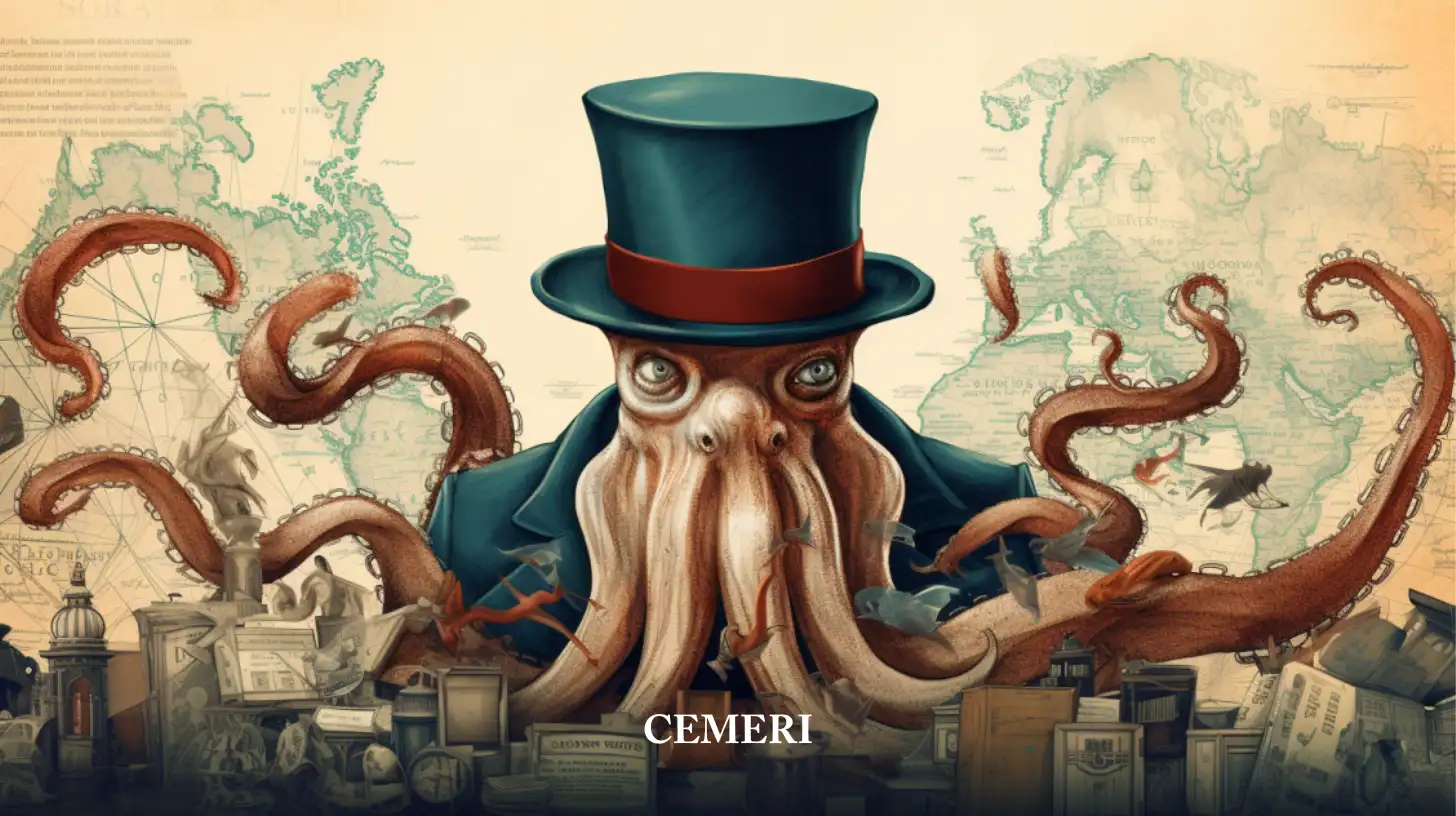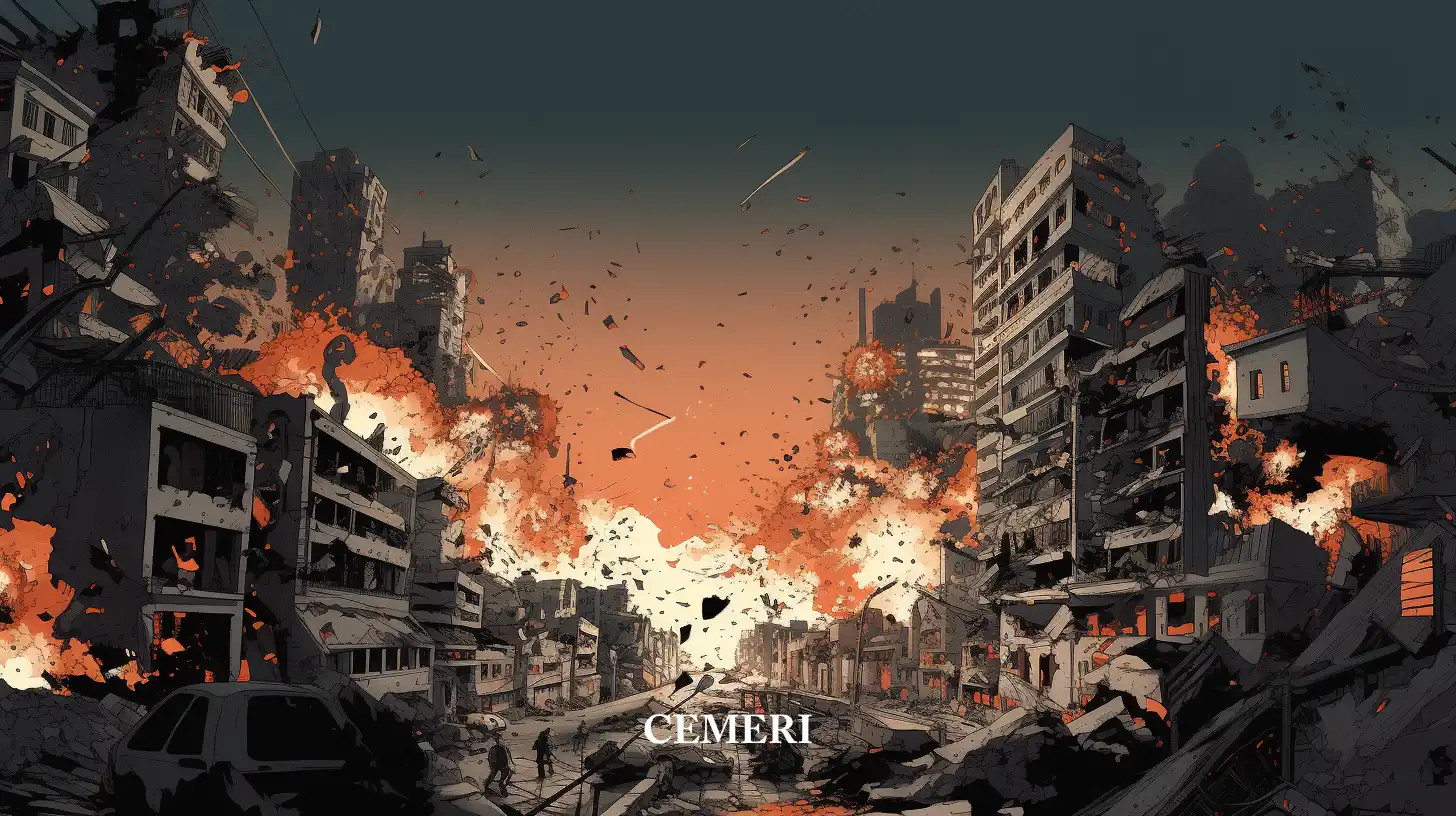Encyclopedia
CEMERI
What is imperialism?
- In this new era of imperialism, the variety of manifestations leads us to question its impact and the implications for international relations in an increasingly interconnected world.

The term "imperialism" is used in different ways, which has turned it into a vague concept, whose general definition is supported by similarities between the different descriptions that various authors have given it and with the historical events that occur throughout the world. time. The foregoing serves to complement an idea in the vision of people to understand this doctrine, so a way to simplify much of the discussion is to know the dynamics of imperialism.
First, it can be defined as a State with power that exercises its authority over another (Linzy 2022). This understanding, however, does not explain the specific motivations or methods used, so it is imperative to analyze the origins and examples of the word. It becomes a broader concept and a greater opportunity for analysis when it is possible to visualize how different explanations provide a clear idea depending on which period of history one wishes to study.
On the one hand, for the realist Hans Morgenthau, imperialism is the process by which nations seek to obtain a change in the state of affairs, which, in general, is represented by military conquest (Algosaibi 1965, 233). A definition that perfectly encompasses the Mongol empire led by Genghis Khan, but that does not fit in the same way with a State like the People's Republic of China, associated with the term in the 21st century (Li 2021), without having fought in any war conflict with its troops since 1979.
Importance of capital
It is impossible to try to understand imperialism without knowing one of its main variables, the economy. Colonialism is a tool that imperialism uses to maximize its profits. A representative case is the invasion of Africa during the 19th century motivated by capital, due to the need for raw materials, land and new markets in which Europeans could enrich their economies (Boddy-Evans 2018).
In addition, their actions were justified with the "mission to civilize" the continent, since their technology was superior to that of any African society at that time. This example of imperialism is the inspiration projected by Vladimir Lenin in his essay "Imperialism, the highest phase of Capitalism"; in it, he points out and criticizes the capitalist system for seeking the greatest benefits, even if that means the subjugation of an entire continent.
On the other hand, after the dissolution of the Union of Soviet Socialist Republics (USSR), the international agenda changed completely, leaving aside the security dilemma and the agreements on weapons of mass destruction to make way for discussions on human rights. , environmental concerns, and multilateral cooperation, however, it also began an era of the development of soft power among powerful nations.
A new era for imperialism
The People's Republic of China and the United States of America are two examples of countries perceived as imperialist, despite not engaging in extraterritorial military conflicts with the purpose of annexing more land to their nations. Taking into account that the end of the US military campaigns is not territorial annexation or colonial expansion, while China has come to expand its own through threats and claims.
Its ability to be able to get involved in different ways in different territories is due to the development of political and economic strategies to expand its geopolitical reach beyond its borders without military deployment (Nafría 2015). The foregoing serves to exemplify how imperialism in the 21st century has the characteristic of showing itself in multiple ways at the same time. On the one hand, China has the possibility of providing capital and infrastructure to various States in the world with the benefit of not placing conditions on their governments, while obtaining important support for its decisions in the forums of the United Nations (UN). ).
On the other, the Russian Federation finds itself in one of the most important conflicts in modern times as it tries to force a traditional expansion into Ukrainian territory. Although President Vladimir Putin has justified the Russian intrusion as a response to a growing presence of NATO, it is feasible to carry out a relationship between the historical union that these territories have had during the existence of the USSR and the refusal of the Russian government to accept Ukraine's sovereignty while seeking to interfere in Ukraine's domestic politics by supporting pro-Russian separatist leaders.
Sources
Li, Minqi. (2021). ''China: Imperialism or Semi-Periphery?''. Montly Review. Recuperado de: https://monthlyreview.org/2021/07/01/china-imperialism-or-semi-periphery/
Linzy, Benjamin. (2022). ''From Imperialism to Postcolonialism: Key Concepts''. Jstor Daily. Recuperado de: https://daily.jstor.org/from-imperialism-to-postcolonialism- key-concepts/

